Is your coffee 'ethical'? Experts explain how to check and what to look for
Here's how the experts source coffee that's good for you, the growers, and the land that they grow it on

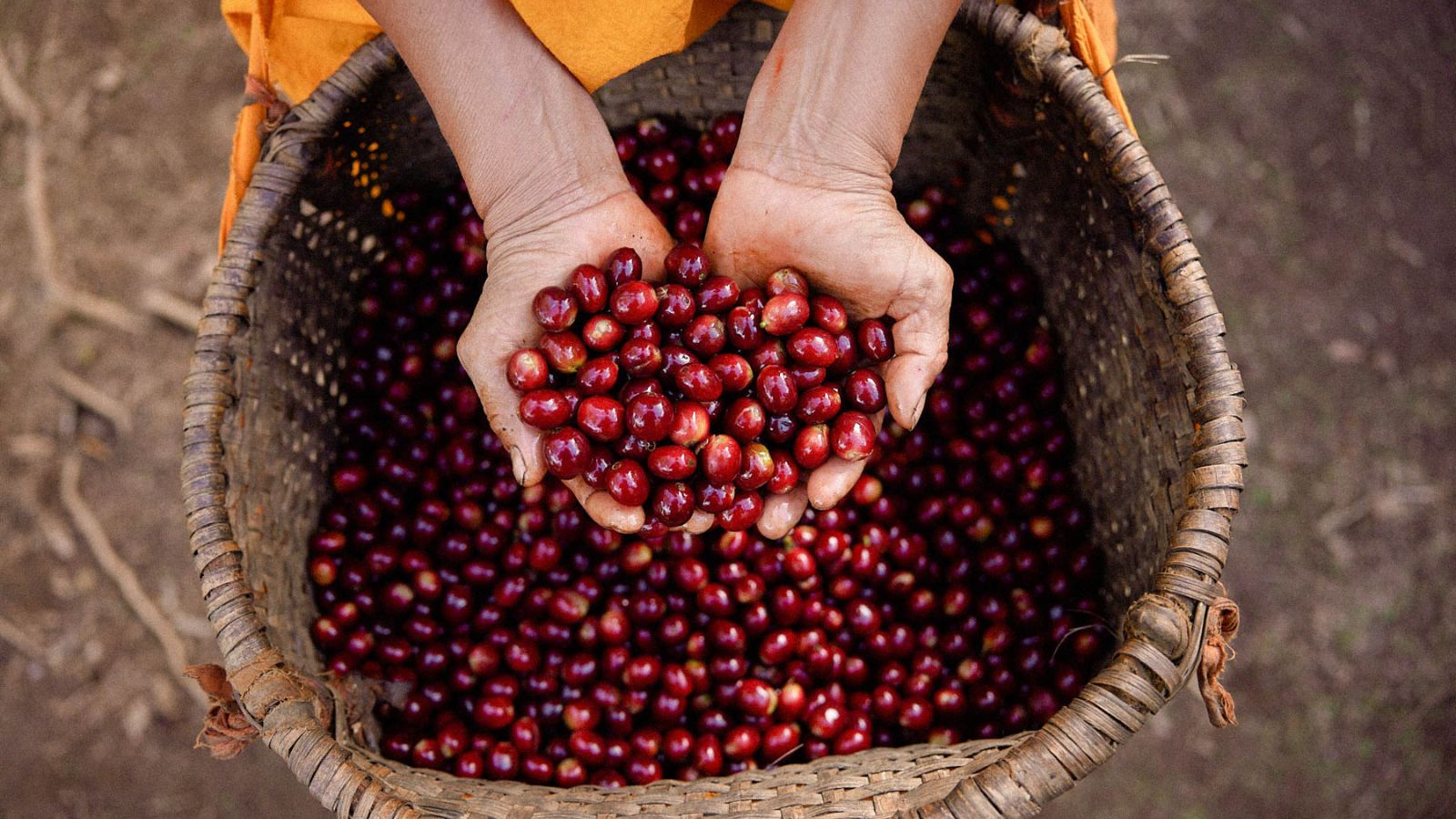
It's all well and good investing in delicious beans, but I can promise you that coffee tastes better when you know that it's doing both you and the people who grew it equal amounts of good. So, how do you choose ethical coffee?
Working out whether your coffee is 'ethical', sustainable, or fairly traded can depend on several factors. I spoke with two experts. The first, Greg Campher is the co-founder and Head of Coffee at Easy Jose Coffee. He's worked in the regenerative, ethical coffee industry for fifteen years, so has plenty of insight and advice on what to look for. The second is Francesca Lavazza, fouth-generation board member at the Lavazza Group. She's been part of the Lavazza Foundation, working on creating an ethical coffee community and is currently promoting their latest Tierra For Cuba Beans (which scores 100/100 for ethical coffee).
If you're wondering what qualifies coffee to be 'sustainable' or 'ethical', Campher has the answers. 'For coffee to be classed as ethical, the production of the beans must involve environmentally sustainable practices,' says Greg. He advises to look for shade-grown coffee, which preserves biodiversity or organic farming methods which reduce the use of harmful chemicals. There's so much more though. We've spilled all the (ethical) beans further down.
What are ethically sourced beans?
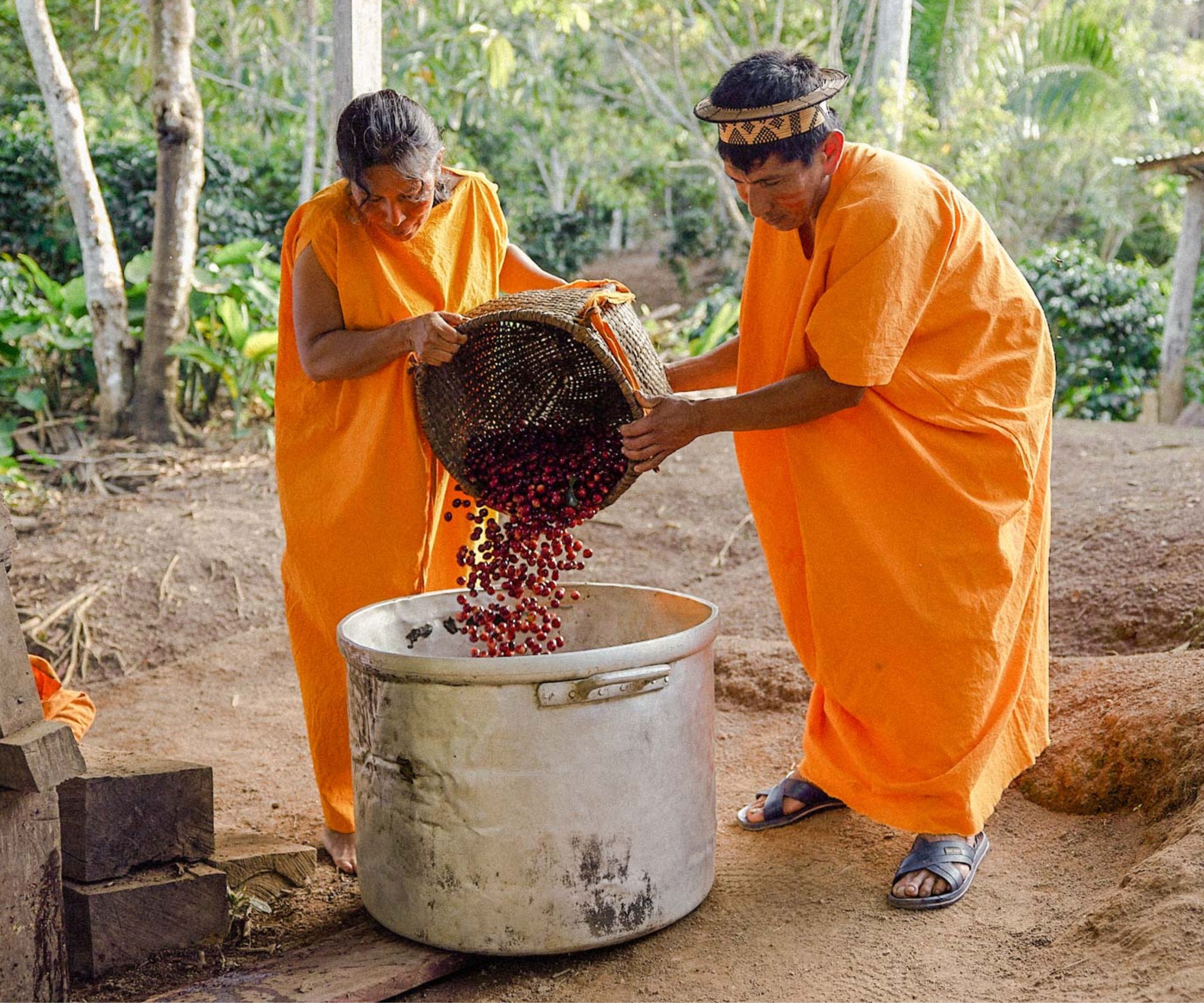
It's hard to pinpoint an exact definition for ethical coffee, since it is an umbrella term for so many factors: the farmers' and workers' well-being; the preservation of ecosystems and rainforests; organic, non-GMO farming practices; fair trading; and much more.
Greg Campher explains, 'ethical coffee is essentially coffee that has been sourced sustainably. First and foremost, it means farmers and communities are receiving fair compensation for their hard work. In many coffee-growing regions, farmers face economic challenges, weather implications, pressure from supply chains, and price fluctuations within the industry. Ethical sourcing practices commit to providing fair prices to farmers, enabling them to maintain sustainable livelihoods and invest in their communities.'
Greg also stressed that ethical coffee beans need to be grown in a carefully nurtured, sustainable environment. The land should be supported by a biodiverse ecosystem and the coffee should be farmed with minimal harmful chemicals and maximal water preservation.
He says that if you're investing in high-quality beans, you're probably already investing in ethical coffee. 'By supporting brands that are transparent about their supply chains and traceability initiatives, consumers can have confidence in the quality and origin of the coffee they purchase.' Ethical coffee doesn't just have to feel good morally, it often tastes delicious.
Design expertise in your inbox – from inspiring decorating ideas and beautiful celebrity homes to practical gardening advice and shopping round-ups.
He added that 'many coffee-growing regions have rich cultural traditions associated with coffee cultivation and processing, such as the Mayni Indigenous Community in the Amazon rainforest. Ethically sourced coffee initiatives help preserve these cultural practices by empowering local communities and supporting them directly.'
How to check whether your coffee is ethical
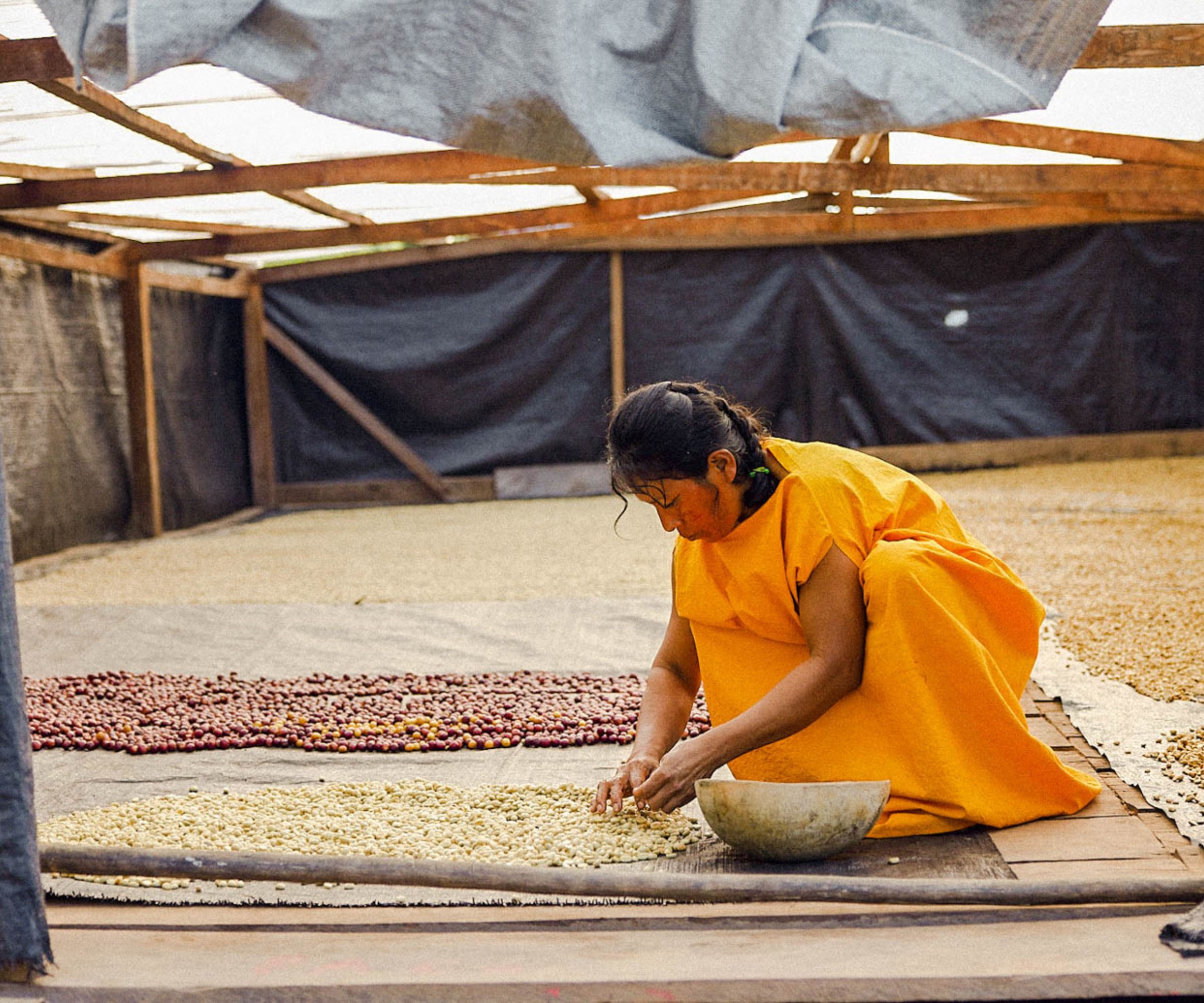
Even those with the best intentions might not know how to check whether their coffee is ethical or not. There are brands who are easy to spot as ethical and sustainable. Lavazza, for example, has dedicated a lot of time and money to their sustainability commitments. They even have a group called Blend for Better, which represents a commitment to the Sustainable Development Goals of the 2030 United Nations Agenda.
You'll be able to spot that Lavazza has Rainforest Alliance certifications, organic certification, WELL Health-Safety Rating certification, and LEED (Leadership in Energy and Environmental Design) certifications. Francesca Lavazza says 'these are just a few of the many projects and initiatives that demonstrate how we take an environmentally responsible approach.'
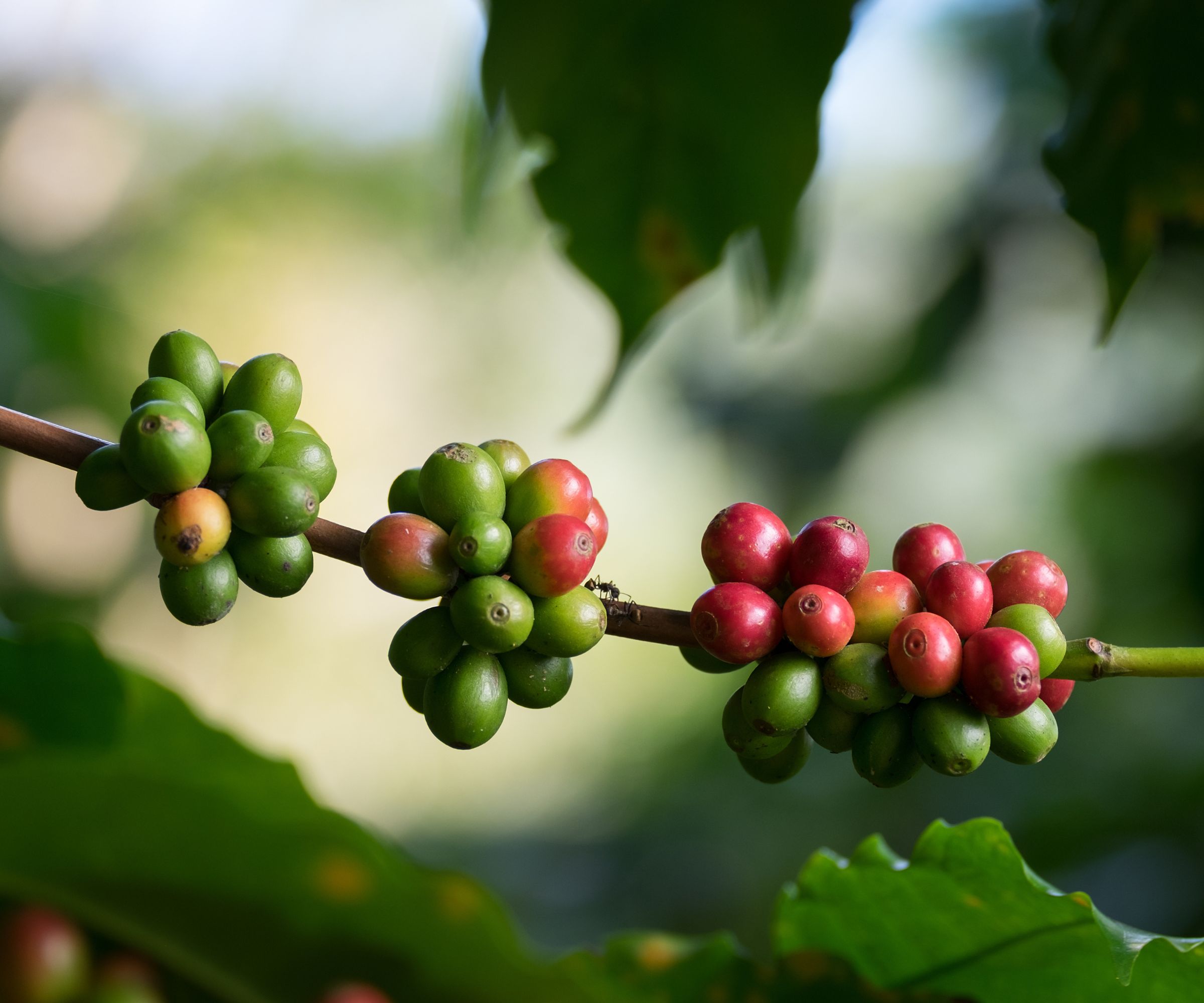
Brands aren't always as good at shouting about their sourcing as Lavazza is. Greg Campher, from Easy Jose, says 'there are several ways to check if coffee is ethically sourced. Although certifications are a good place to start, quite often smaller brands who are having a substantial impact, don’t always have the funds to pay for the accreditations. Some common certifications include Fairtrade, Rainforest Alliance, UTZ Certified, and Organic, which supply logos that are placed on packaging. These certifications ensure that the coffee meets specific social, environmental, and economic standards. However, there are brands out there going above and beyond these standards.'
'Some coffee brands provide information on their websites and/or packaging about their sourcing practices and partnerships with coffee growers. Look for brands that are transparent about where their coffee comes from and how they support farmers and communities. Easy Jose decided to put the faces of our growers front and center of our bags. This decision was to clearly communicate to shoppers who picked their coffee and an immediate way of connecting them to the producers.'
Greg advises looking for online retailers that prioritize ethical sourcing and purchase directly from them. That way shoppers can be assured most of their money is going directly to the farmers and communities. Local roasters and specialty coffee shops often prioritise ethical sourcing and more often than not have direct relationships with coffee producers. Ask staff at cafes, read reviews online, and enquire with a brand about their sourcing practices. By considering these factors and doing a little research, you can make more informed decisions when purchasing coffee.
What certifications can you look for?
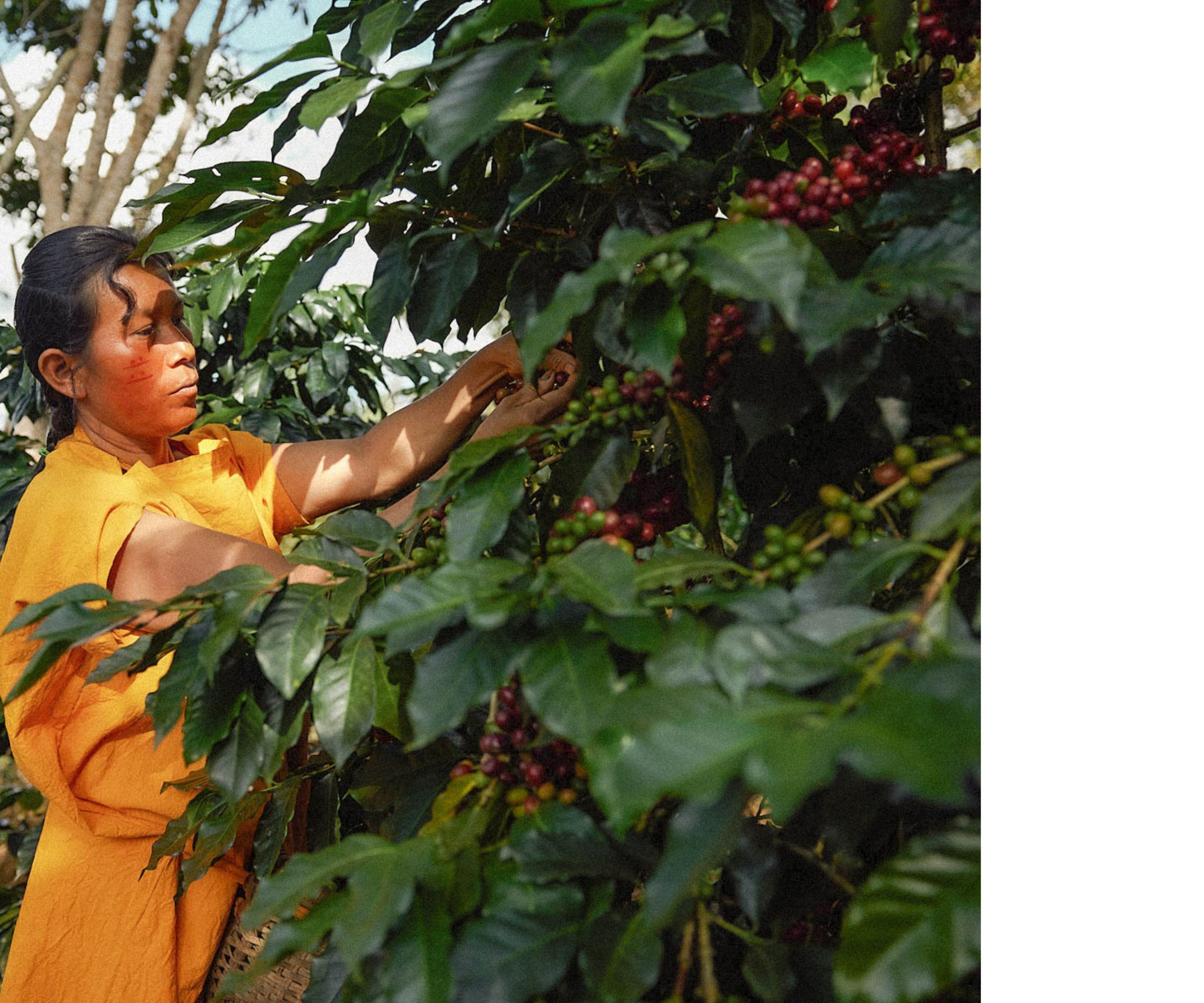
The list of Lavazza's certifications (Rainforest Alliance, Organic, LEED, WELL Health-Safety, and TÜV Austria) are a great place to start. Francesca Lavazza says that 'contributing to improving the working and living conditions of the local communities isn't always something that you can see when you're looking at your cup of coffee. However, there are other places that you can look.
While not a certification in the traditional sense, Direct Trade involves coffee roasters establishing direct relationships with coffee producers, bypassing intermediaries and ensuring fair prices for farmers. Although it doesn't have a standardized label, some coffee companies promote their direct trade relationships as a mark of ethical sourcing.
Fairtrade certification ensures that coffee producers receive fair prices for their beans, which covers the cost of sustainable production and provides a living wage for farmers. It also promotes democratic decision-making among farmer cooperatives and prohibits child labor and discrimination. Coffee bearing the Rainforest Alliance certification is grown on farms that meet rigorous environmental and social standards. These standards include protecting wildlife habitats, conserving natural resources, ensuring fair treatment and good working conditions for workers, and supporting local communities. UTZ Certified coffee signifies that the coffee has been sourced sustainably and meets standards for environmental responsibility, social equity, and economic viability. It focuses on improving agricultural practices, worker conditions, and farmer livelihoods.
Organic certification indicates that the coffee has been produced without the use of synthetic pesticides, herbicides, or fertilizers. Organic farming practices promote soil health, biodiversity, and environmental sustainability.
Which brands make ethical coffee?
As you might expect, Easy Jose Coffee is a great place to start for ethically sourced beans. They're sustainably grown and were voted Best Indy Buy by the Independent in 2020. There are also some great companies that experts recommend. Here's just a few:
- Lavazza: no guesses as to why we love these. Their latest ¡Tierra! For Cuba Beans taste as good as the work that they do.
- Union: these are the beans that I started out my journey as a barista with and they're beautiful. Buy Natural Spirit if you want organic beans
- Lifeboost: these are organic, low acid, and non-GMO. People say that they have a 'clean' taste
- Brewpoint: these guys are all about small-batch coffee. They help people to start their own coffee shops. It's a woman and minority-owned business.
- Frinj coffee: this is Californian coffee grown locally using an agroforestry model (they plant different, complementary crops next to each other. Who knew avocados and coffee were a match made in heaven?)
- Tiny Footprint: these people claim to be the world's first carbon-negative coffee that supports sustainability and fair labor. They donate money to fund reforestation.
- Tayst: this coffee is premium, biodegradable, and compostable too
- Cafédirect: founded in 1991, these roasters aim to make 'delicious coffee that's better for everyone'. They're addressing gender equality, climate action, and youth opportunities
- Equal Exchange: proud of fairly traded, organic coffee, and chocolate. tea and cocoa from small-scale farmers

Laura is our eCommerce editor. As a fully qualified barista, she's our expert in all things coffee and has tested over thirty of the best coffee makers on the market. She has also interviewed Q-Graders and world-leading experts in the coffee industry, so has an intimate knowledge of all things coffee. Before joining Homes & Gardens, she studied English at Oxford University. Whilst studying, she trained as a master perfumer and worked in the luxury fragrance industry for five years. Her collection of home fragrance is extensive and she's met and interviewed five of the world's finest perfumers (also known as 'noses'). As a result of this expansive fragrance knowledge, she always puts quality and style over quantity and fads. Laura looks for products which have been designed simply and with thoughtful finishes.